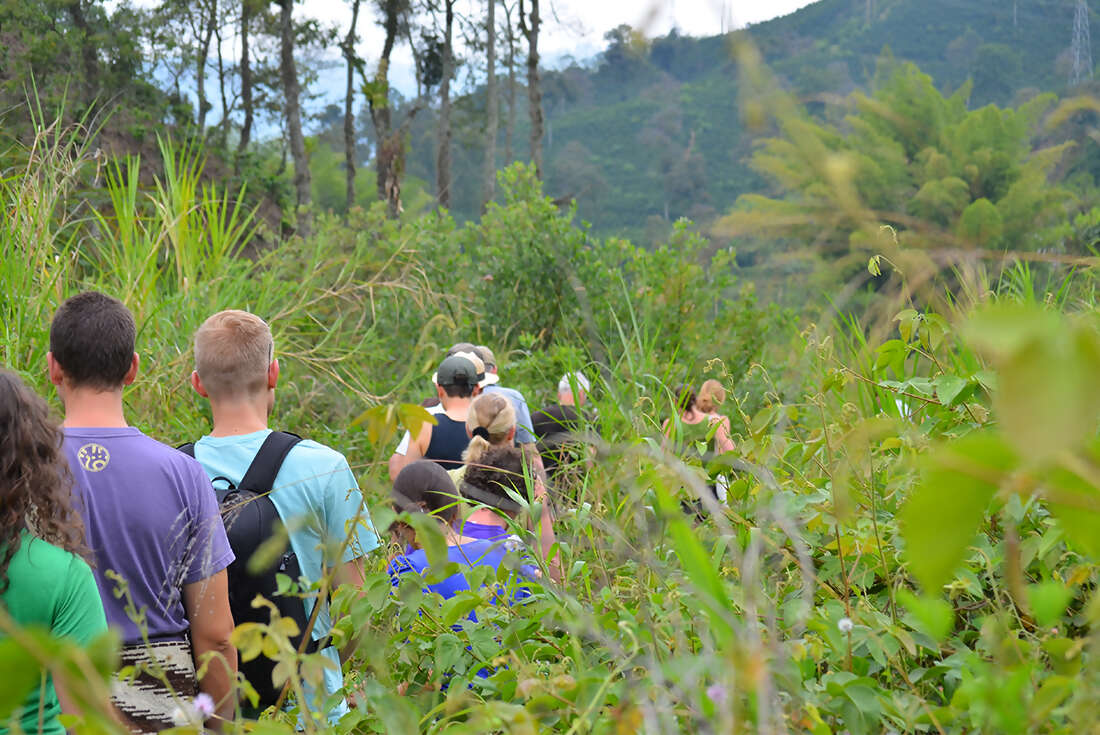 Take a breathtaking family holiday among the clouds in Peru, designed to keep teenagers and adults alike captivated. Stroll cobblestone streets and see ancient Inca structures in Cusco. Glide through the Sacred Valley, passing the salt flats of Maras on a cycling adventure. Hike section of the Inca Trail and see Machu Picchu emerge among the clouds with your loved ones by your side. Rise early to row a boat across the calm waters of Lake Titicaca to a homestay on a floating island. This is family travel done different: active, immersive and authentic.
Take a breathtaking family holiday among the clouds in Peru, designed to keep teenagers and adults alike captivated. Stroll cobblestone streets and see ancient Inca structures in Cusco. Glide through the Sacred Valley, passing the salt flats of Maras on a cycling adventure. Hike section of the Inca Trail and see Machu Picchu emerge among the clouds with your loved ones by your side. Rise early to row a boat across the calm waters of Lake Titicaca to a homestay on a floating island. This is family travel done different: active, immersive and authentic. Highlights
Spend one day hiking a section of the Inca Trail and emerge triumphant atop Machu Picchu, a bucket list item for many.
Descend from the Salt Flats of Maras on a mountain biking adventure like no other, riding around thrilling bends and past incredible scenery.
Row a boat across the serene waters of Lake Titicaca, then stay overnight with a host family on a floating island.
With travel through remote areas, a homestay and engaging history lessons from a local leader along the way, this tour immerses your family in a new culture.
This tour is designed for active families with teenagers – the kind of families that love adventure and doing thing differently, together.





- You will visit the following places:
-

Cusco
Cusco, often spelled Cuzco, is a city in southeastern Peru, near the Urubamba Valley of the Andes mountain range. It is the capital of the Cusco Region as well as the Cusco Province. In 2013, the city had a population of 435,114. Located on the eastern end of the Knot of Cuzco, its elevation is around 3,400 m (11,200 ft). The site was the historic capital of the Inca Empire from the 13th until the 16th-century Spanish conquest. In 1983 Cusco was declared a World Heritage Site by UNESCO. It has become a major tourist destination, hosting nearly 2 million visitors a year. The Constitution of Peru designates it as the Historical Capital of Peru.
-

Ollantaytambo
Ollantaytambo (called by locals Ollanta) is a town and an Inca archaeological site in southern Peru. This is where the Incas retreated after the Spanish took Cuzco. Much of the town is laid out in the same way as it was in Inca times. Today it is an important tourist attraction on account of its Inca buildings and as one of the most common starting points for the four-day, three-night hike known as the Inca Trail.
-

Lima
Lima is the capital and largest city of Peru. It is located in the valleys of the Chillón, Rímac and Lurín rivers, in the central part of the country, on a desert coast overlooking the Pacific Ocean. Together with the seaport of Callao, it forms a contiguous urban area known as the Lima Metropolitan Area. With a population fast approaching 9 million, Lima is the fifth largest city in Latin America, behind Mexico City, São Paulo, Buenos Aires and Rio de Janeiro. Lima is home to one of the largest financial hubs in Latin America. It has been defined as a beta world city by GaWC international rankings. It was founded by Spanish conquistador Francisco Pizarro on January 18, 1535, as La Ciudad de los Reyes, or "The City of Kings."